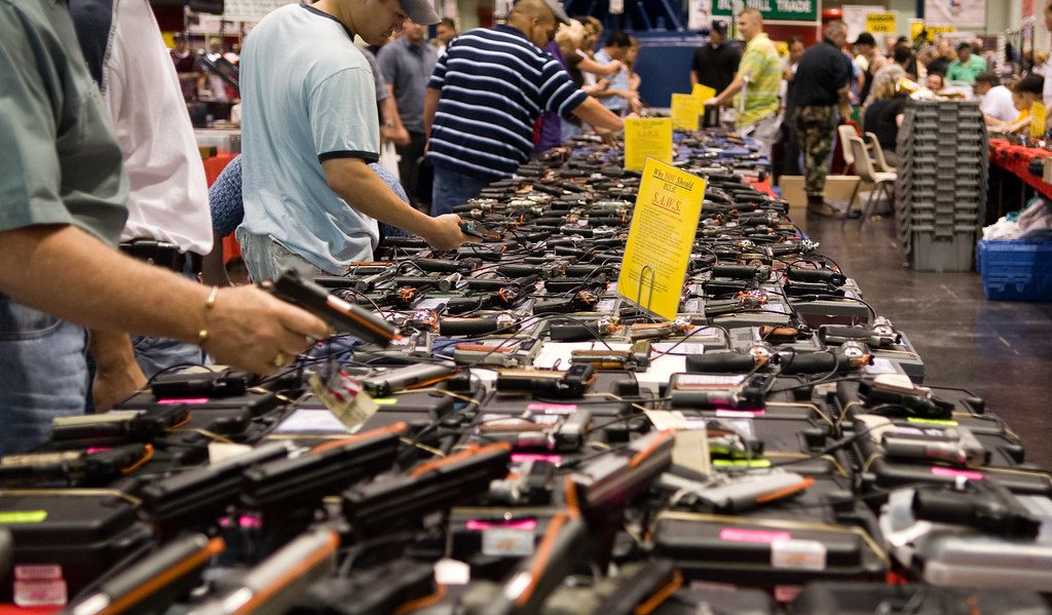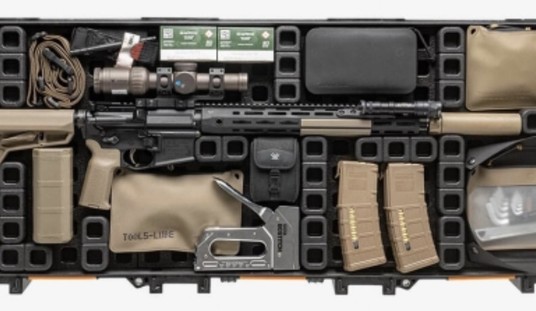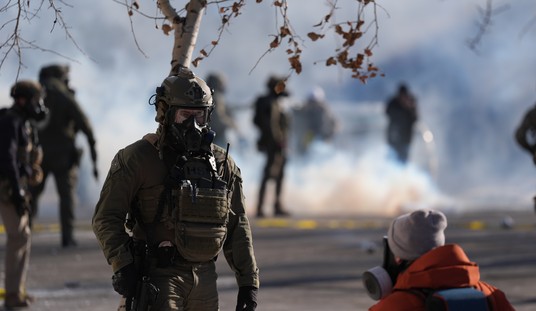Ohio Congressman and House Judiciary Chair Jim Jordan is demanding ATF chief Steve Dettelbach provide Congress with information about how the agency's proposed rule re-defining who is "engaged in the business" of selling firearm was crafted, including what, if any, conversations ATF employees may have had with gun control groups and the White House before the proposed rule was published last August.
Cleveland.com was the first to report on Jordan's letter, which requests that Dettelbach provide the information Jordan is asking for by March 14. Jordan also wants details from Dettelbach on how the agency plans to enforce its proposed rule once it's been formally adopted; information that's vitally important to any gun owner who might choose to sell a firearm from their personal collection, given that the language of the rule could force almost every private seller to either become a federally licensed firearm dealer or use an FFL to conduct a background check before proceeding with the sale.
From the mid-1980s until the adoption of the Bipartisan Safer Communities Act in 2022, the ATF defined “engaged in the business” as someone who "devotes time, attention, and labor to dealing in firearms as a regular course of trade or business with the principal objective of livelihood and profit through the repetitive purchase and resale of firearms.” The BCSA removed the language stating that the principal objective was profit and livelihood “ with the lower standard of “to predominantly earn a profit", which the gun control law defines as “the intent underlying the sale or disposition of firearms is predominantly one of obtaining pecuniary gain, as opposed to other intents, such as improving or liquidating a personal firearms collection.”
The ATF has tried to broaden that language even further in its proposed rule. Even though federal statute still maintains that someone must be "dealing in firearms as a regular course of trade or business", the ATF has declared that there is no "minimum threshold number of firearms purchased or soldt hat triggers the licensing requirement."
Similarly, there is no minimum number of transactions that determines whether a person is “engaged in the business” of dealing in firearms. For example, even a single firearm transaction or offer to engage in a transaction, when combined with other evidence (e.g., where a person represents to others a willingness to acquire more firearms for resale or offers more firearms for sale), may require a license.
You don't even have actually sell a single firearm from your personal collection in order for the ATF to decide that you're "engaged in the business", in other words. A simple offer to sell a gun could be enough to trigger a criminal prosecution if the rule is finalized and enforced, as would buying a table at a local gun show. As the National Shooting Sports Foundation argued in its public comment objecting to the proposal:
Apparently, ATF special agents will be assigned to snoop around at gun shows randomly to determine the motivations of persons with tables, rather than to use their scarce resources toinvestigate and arrest illegal firearms traffickers, straw purchases, armed drug traffickers and armed criminals (“trigger pullers” as ATF has referred to them).
Under the proposed rule, the ATF gets to assume that any of its targets is guilty of selling guns without an FFL, and its up to any gun owner who is investigated or charged to provide "reliable evidence to the contrary". In other words, you're guilty until proven innocent, though the ATF says those presumptions don't apply in any criminal cases. That caveat is at least weakened, if not obliterated completely, however, since the ATF goes on to declare that those presumptions can be used for jury instructions.
Democrats have made the intention behind the rule perfectly clear. The ATF's rule change was sparked by an executive order from Joe Biden last year that directed "the Attorney General to move the U.S. as close to universal back ground checks as possible without additional legislation by clarifying, as appropriate, the statutory definition of who is “engaged in the business” of dealing in firearms, as updated by the Bipartisan Safer Communities Act", and Senate Democrats further confirmed that this was a backdoor attempt to dramatically expand background checks to private sales of firearms in a letter to the ATF last November.
... when guns are offered for sale in commercial marketplaces—whether at a gun show or online—there is business, and those selling them are engaged in that business and required to become licensed dealers and conduct background checks. The proposed rule also makes clear that, while no minimum number of transactions is determinative, “even a single firearm transaction or offer to engage in a transaction, when combined with other evidence, may be sufficient.” ATF’s dual approach—1) rebuttable presumptions for when a person is “engagedin the business” of dealing in firearms, and 2) for conduct and activities not covered in thosepresumptions, determinations based on the totality of the circumstances—will help close the loopholes that have allowed individuals engaged in the business of selling guns to do so without getting licensed and without running background checks for decades.
There is no "gun show loophole." Commerical firearms dealers have to put their buyers through background checks, while private gun owners selling off one or more of their firearms do not. Even BSCA doesn't create a universal background check scheme, but the proposed rule by the ATF would come far too close for comfort for tens of millions of American gun owners, who would basically be forced to use FFLs to put potential buyers through a background check, become an FFL themselves before running that check, or else risk federal prosecution for being an unlicensed dealer.
Jordan's demand letter to Dettelbach won't upend the ATF's proposed rule, but it will hopefully shine a little sunlight on the backroom scheming that resulted in the rule being drafted; evidence that, if nothing else, can be used in the inevitable court challenge to come once the ATF finalizes the rule and begins enforcement.








Join the conversation as a VIP Member